The Inaugural Conference of Postgraduate Contemporary Women’s Writing Network
advertisement
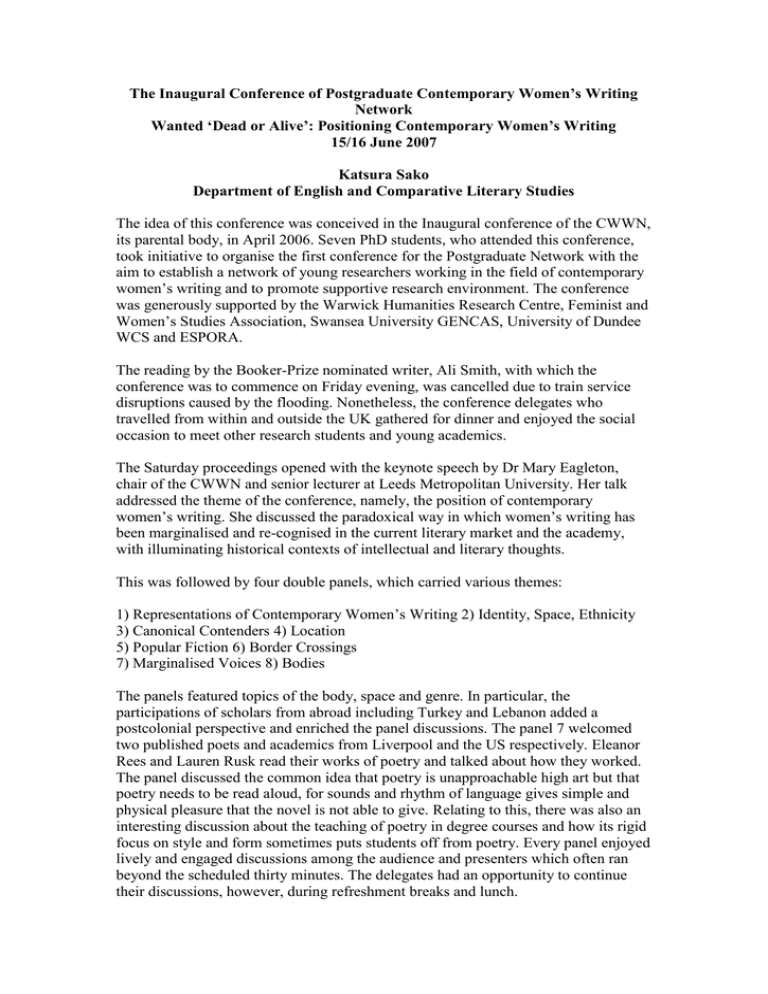
The Inaugural Conference of Postgraduate Contemporary Women’s Writing Network Wanted ‘Dead or Alive’: Positioning Contemporary Women’s Writing 15/16 June 2007 Katsura Sako Department of English and Comparative Literary Studies The idea of this conference was conceived in the Inaugural conference of the CWWN, its parental body, in April 2006. Seven PhD students, who attended this conference, took initiative to organise the first conference for the Postgraduate Network with the aim to establish a network of young researchers working in the field of contemporary women’s writing and to promote supportive research environment. The conference was generously supported by the Warwick Humanities Research Centre, Feminist and Women’s Studies Association, Swansea University GENCAS, University of Dundee WCS and ESPORA. The reading by the Booker-Prize nominated writer, Ali Smith, with which the conference was to commence on Friday evening, was cancelled due to train service disruptions caused by the flooding. Nonetheless, the conference delegates who travelled from within and outside the UK gathered for dinner and enjoyed the social occasion to meet other research students and young academics. The Saturday proceedings opened with the keynote speech by Dr Mary Eagleton, chair of the CWWN and senior lecturer at Leeds Metropolitan University. Her talk addressed the theme of the conference, namely, the position of contemporary women’s writing. She discussed the paradoxical way in which women’s writing has been marginalised and re-cognised in the current literary market and the academy, with illuminating historical contexts of intellectual and literary thoughts. This was followed by four double panels, which carried various themes: 1) Representations of Contemporary Women’s Writing 2) Identity, Space, Ethnicity 3) Canonical Contenders 4) Location 5) Popular Fiction 6) Border Crossings 7) Marginalised Voices 8) Bodies The panels featured topics of the body, space and genre. In particular, the participations of scholars from abroad including Turkey and Lebanon added a postcolonial perspective and enriched the panel discussions. The panel 7 welcomed two published poets and academics from Liverpool and the US respectively. Eleanor Rees and Lauren Rusk read their works of poetry and talked about how they worked. The panel discussed the common idea that poetry is unapproachable high art but that poetry needs to be read aloud, for sounds and rhythm of language gives simple and physical pleasure that the novel is not able to give. Relating to this, there was also an interesting discussion about the teaching of poetry in degree courses and how its rigid focus on style and form sometimes puts students off from poetry. Every panel enjoyed lively and engaged discussions among the audience and presenters which often ran beyond the scheduled thirty minutes. The delegates had an opportunity to continue their discussions, however, during refreshment breaks and lunch. The conference was a great success. It has proved the existing active interest in the field of contemporary women’s writing and the increasing demand to link researchers working in the field. It has been agreed that the CWWN and PGCWWN will hold a conference every other year, and the conference organisers called for volunteers to organise the second PG conference in 2009. Meanwhile, the CWWN conference is being planned to be held at the University of Leicester next year. Dr Eagleton has informed us that they have agreed with the University of Oxford Press on the publication of the academic journal, Contemporary Women’s Writing. The first issue is expected to be out by the end of this year. It is hoped that this conference has contributed to such growing area of research in contemporary women’s writing.
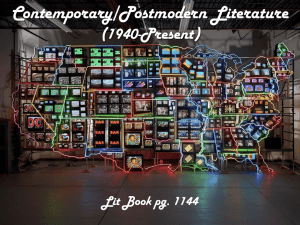
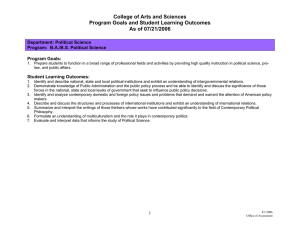
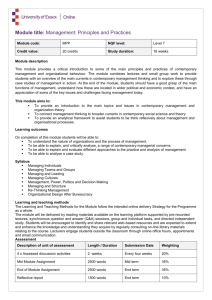
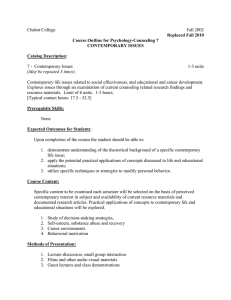

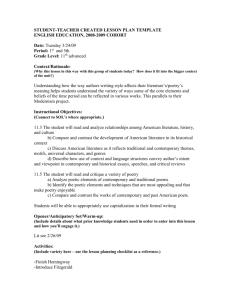
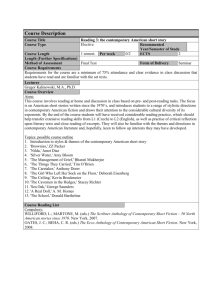
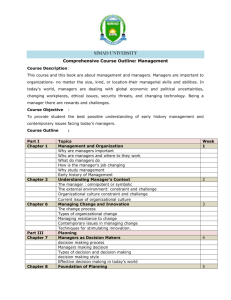

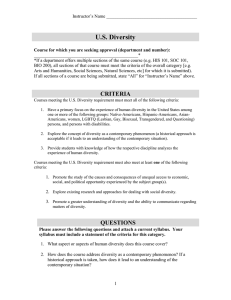
![MA in Modern and Contemporary Literature, Culture Thought Course Handbook 2015-16 [DOC 1000.50KB]](http://s2.studylib.net/store/data/015093855_1-516a1de41b9f53b6cda6c799f6fcef8f-300x300.png)